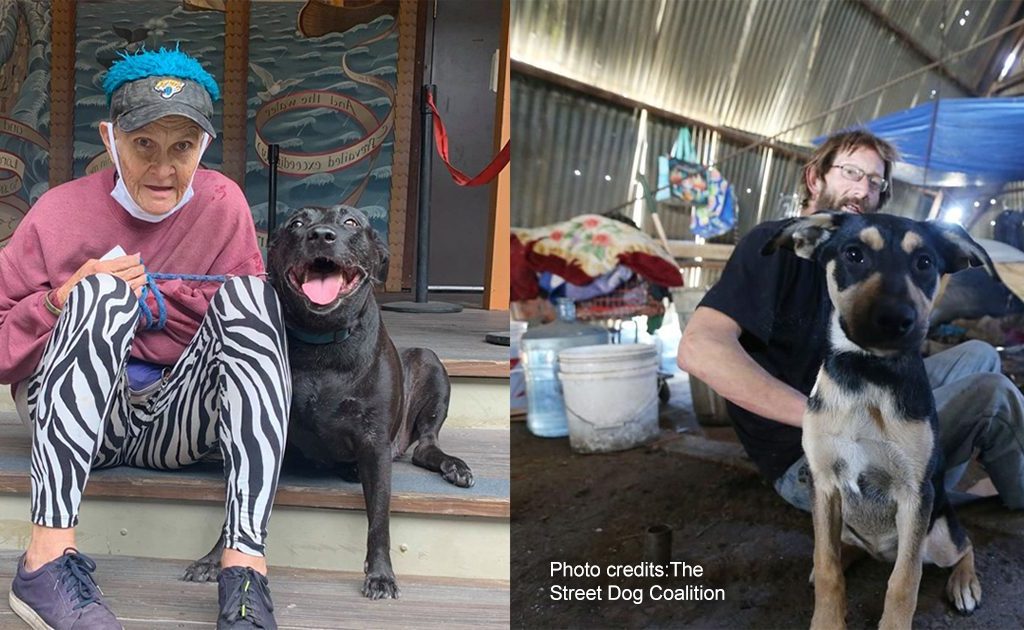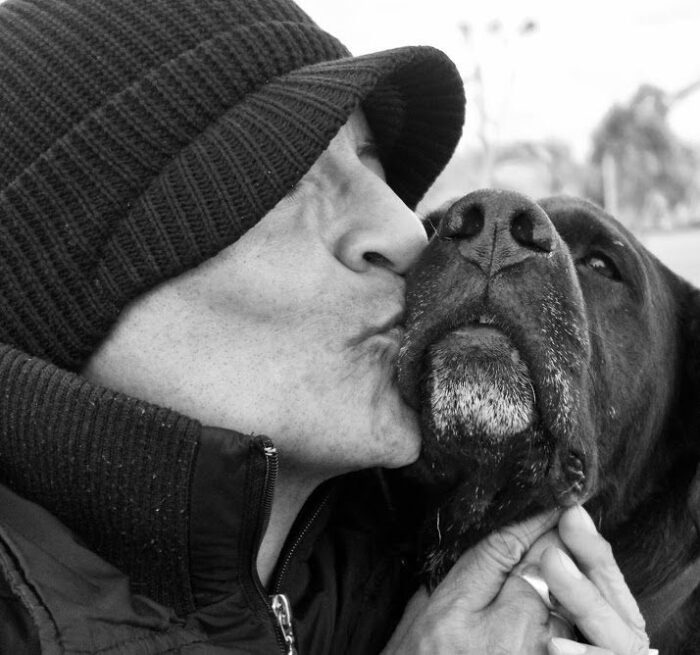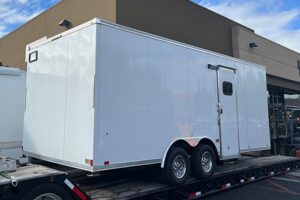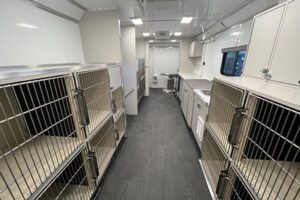

Back in 2015, Colorado veterinarian Jon Geller recognized that the pets of people experiencing homelessness lacked access to primary veterinary care. He set up the first Street Dog Coalition clinic near a homeless day shelter and provided free veterinary care to 25 dogs and five cats that day. Since then, the Coalition has expanded its clinics to more than fifty cities across the United States.
As with the origin of the Street Dog Coalition, Dr. Geller recognized at the outset of the Russian invasion of Ukraine that citizens fleeing the country with pets would need rabies vaccinations, microchipping, and pet passports or face the prospect of abandoning their pets at the border. Dr. Geller traveled to the southern Ukraine-Romania border, where he spent 12 days providing veterinary services to the pets of Ukrainian refugees. Street Dog Coalition then set up a large blue tent (nicknamed the “Blue Vet Group”) on the Ukrainian border at Isaccea, Romania, that was staffed with volunteer veterinarians. They provided veterinary checks to more than 800 pets over 4 months. As the number of Ukrainians leaving the country declined, the Street Dog Coalition and its volunteers pivoted to provide veterinary supplies and services inside Ukraine.
I had 3 students from the veterinary school in Zagreb, Croatia, who were eager to learn and help. We stayed in a Russian Orthodox Church hostel with a group of Ukraine refugees, and the food was tasty and interesting. Even more amazing was the hearty fare served at the border station by World Central Kitchen, and the cauldrons of stews served by an impromptu Greek café. Sometimes at night, Alex would take us to his house and we would listen to him DJ on his electronic sound system.
The ferry at the Isaccea border station came about every 2 hours with a group of refugees and we would mingle with them to see who had pets. Most of the refugees were women and children, because men younger than 50 years must stay and fight. Because of the busy nature of the work, my Romanian colleagues authorized me to work on their behalf to help process paperwork and pet passports while they worked at their practices. They came multiple times a day to check on things and enjoy the international atmosphere at the border. As the only American, I was very reliant on my multilingual veterinary students and translators to communicate but I enjoyed interacting with the border guards through Google Translate.
This month, the Street Dog Coalition is embarking on its most ambitious project yet and plans to provide veterinary care to animals inside Ukraine. With the help of generous donors, the Coalition purchased a 25’ long mobile unit (a towed trailer) outfitted with all necessary veterinary equipment and supplies. The mobile clinic will travel to Ukraine to treat and sterilize (as needed) 10,000 pets in the next year. The mobile unit is outfitted with a surgery table, a treatment table, cages, surgery lights, anesthesia machines, and more. The trailer will be shipped from Texas to the United Kingdom in mid to late December. Once there, it will be loaded with supplies and driven to smaller Ukrainian towns. Of course, this effort is not without risks. Security for the staff and the mobile clinic will constantly be evaluated to determine where the mobile clinic can safely be deployed.


The Street Dog Coalition is a member of the Ukraine Rescue, Relief & Rebuild (U3R) consortium, a group of non-profits, including WellBeing International, Sloboda Zvierat, Save the Dogs, and Tigers in America. Each partner brings areas of expertise to support the people and animals of Ukraine, whether the assistance targets pets leaving the country or those remaining inside Ukraine. Donations made to WellBeing International’s U3R campaign will not only help the Street Dog Coalition meet its need to cover the operational costs of the mobile clinic, including fuel, medical supplies, and insurance but also support the other consortium partners.
